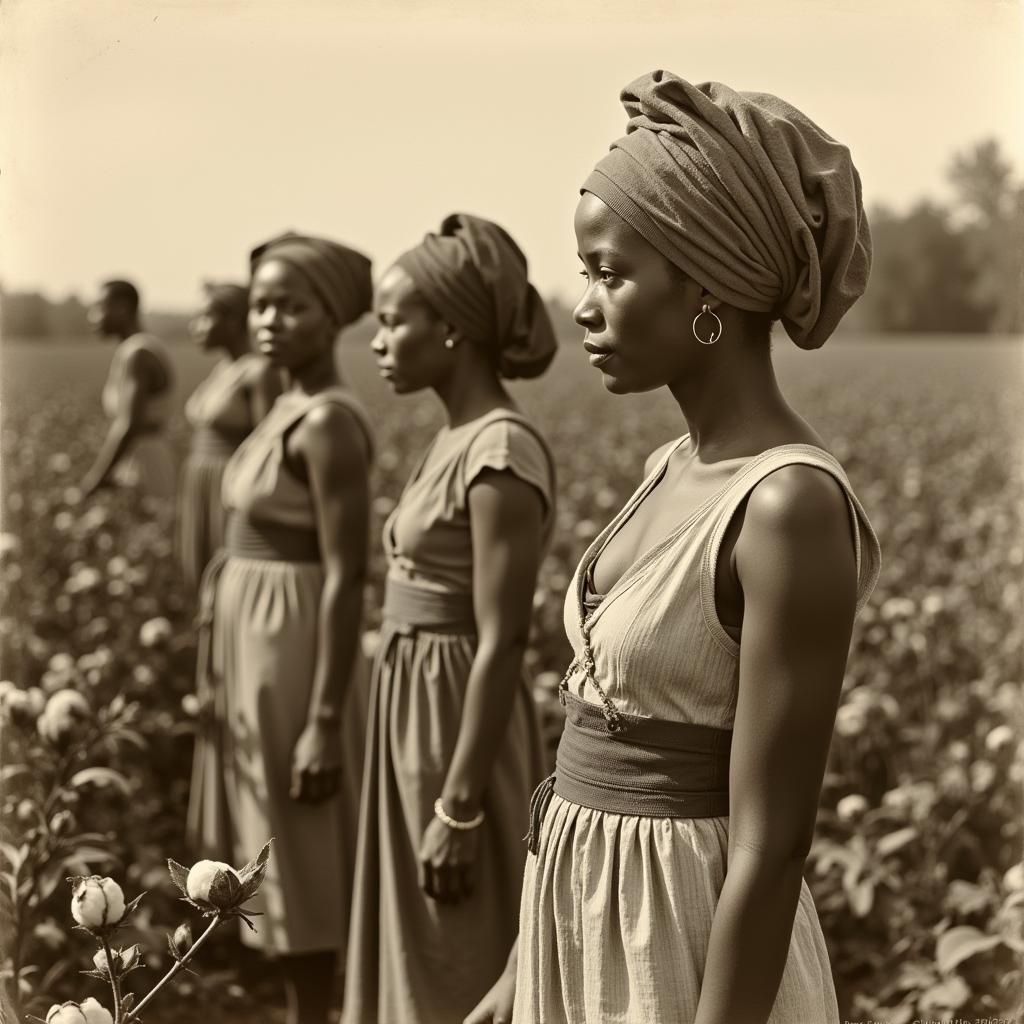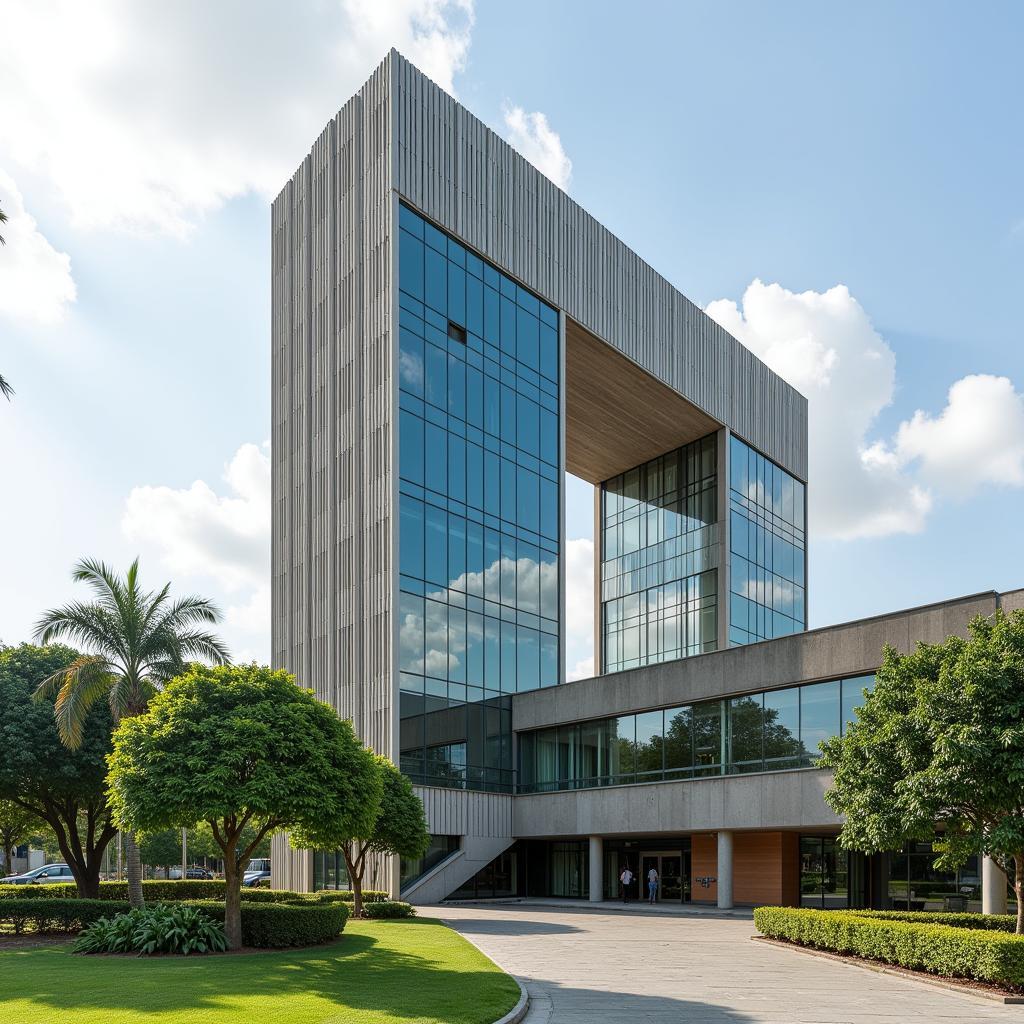African American Labor Hairstyles: A History of Style and Resilience
African American Labor Hairstyles have a rich and complex history, reflecting a need for practicality, a desire for self-expression, and a powerful statement of cultural identity. From the fields to the factories, these hairstyles were more than just a way to manage hair—they were a testament to resilience, creativity, and a deep connection to heritage.
 African American women working with headwraps in cotton fields
African American women working with headwraps in cotton fields
The Practicalities of Labor Hairstyles
During the era of slavery and beyond, African Americans working laborious jobs required hairstyles that could withstand long hours, intense heat, and physical exertion. These styles needed to be low-maintenance, protective, and secure, allowing individuals to focus on their work without the added burden of hair care.
One such style that rose to prominence was braiding. Tightly woven braids offered numerous advantages. They kept hair off the face and neck, preventing tangles and discomfort. The intricate patterns, passed down through generations, also served as a source of cultural pride and community bonding.
Another practical and culturally significant style was the headwrap. Crafted from various fabrics, often brightly colored and patterned, headwraps secured hairstyles, absorbed sweat, and provided sun protection. Beyond their functional aspects, headwraps were also used to communicate social standing, marital status, and personal style.
From Necessity to Self-Expression: The Evolution of Labor Hairstyles
As African Americans transitioned from forced labor to other forms of employment, their hairstyles continued to evolve, reflecting changing societal norms and a growing sense of individual identity. While practicality remained essential, new styles emerged, incorporating elements of fashion and personal flair.
The influence of the Civil Rights Movement and the Black Power Movement brought about a resurgence of natural hairstyles. The afro, a powerful symbol of Black pride and self-acceptance, became a defining hairstyle. Its voluminous texture and unapologetic naturalness challenged Eurocentric beauty standards and celebrated African heritage.
Modern Interpretations: Labor Hairstyles Today
Today, the legacy of African American labor hairstyles lives on. While the need for strict practicality may have diminished, these styles continue to inspire contemporary hair trends. Braids, twists, locs, and headwraps have transcended their utilitarian origins, becoming versatile and stylish options embraced by people of all backgrounds.
However, it’s crucial to acknowledge the challenges that persist. Discrimination based on hair texture and style remains a pressing issue. In many professional settings, Black individuals, particularly women, face pressure to conform to Eurocentric beauty standards, often at the expense of their cultural identity and personal preferences.
FAQs
1. What are some other names for African American labor hairstyles?
African American labor hairstyles have been referred to by various names throughout history, including protective styles, work hairstyles, and traditional Black hairstyles.
2. Are labor hairstyles still relevant today?
Absolutely! While the specific needs they addressed may have evolved, these styles continue to hold cultural significance and inspire contemporary hair trends. They are a testament to resilience, creativity, and the beauty of Black hair.
3. Why is it important to learn about the history of African American labor hairstyles?
Understanding the history of these hairstyles provides insights into the Black experience, highlighting themes of resilience, cultural identity, and the ongoing struggle for equality. It fosters appreciation for the artistry and significance of Black hair.
Need Help?
We’re here to support you! If you have any questions or need assistance, please don’t hesitate to contact us.
- Phone: +255768904061
- Email: kaka.mag@gmail.com
- Address: Mbarali DC Mawindi, Kangaga, Tanzania
Our dedicated customer support team is available 24/7 to assist you.

